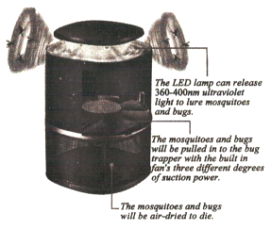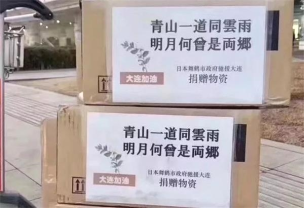
【题目】假定英语课上老师要求同桌之间交换修改作文,请你修改你同桌写的以下作文。文中共有10处语言错误,每句中最多有两处。每处错误仅涉及一个单词的增加、删除或修改。
增加:在缺词处加一个漏字符号(![]() ),并在其下面写出该加的词。
),并在其下面写出该加的词。
删除:把多余的词用斜线(\)划掉。
修改:在错的词下画一横线,并在该词下面写出修改后的词。
注意:1. 每处错误及其修改均仅限一词;
2. 只允许修改10处,多者(从第11处起)不计分。
I don’t exactly remember what old I was when I started to ride a bike. I only remember that I practice riding a bike in my early years. When I first successful rode a bike, which remained a vivid memory, my brother helped him by holding the back seat of the bike steadily while I was riding. “Wow, I did it!”, cried I, as soon as I noticed I was riding with his hands! After that, I was inspiring to ride a bigger bike (26 inches) to ride faster even though my feet was not touching the ground!
Soon, I started to go to the local traffic playground frequently which kids could learn traffic rules from the policeman working at there. I really enjoyed there! At 12, I finally learnt how to ride the bike, and nothing could hold me back.
【答案】第一处: what→how
第二处:practice→practiced
第三处: successful→successfully
第四处: him→me
第五处: with→without
第六处:inspiring→inspired
第七处: not 前加were
第八处:which→where
第九处:去掉at
第十处: the→a
【解析】
本文是一篇记叙文,作者讲述了自己小时候学骑自行车的经历。
第一处:考查宾语从句的连接词。句意:我不记得我多大时开始骑自行车的了。此处为宾语从句,根据句意可知此处用how old表示“多大年纪”,故what改为how。
第二处:考查时态。句意:我只记得我早年练过骑自行车。根据时间状语“in my early years”可知事情发生在过去,应该用一般过去时,故practice改为practiced。
第三处:考查副词。句意:当我第一次成功地骑上自行车时,那一刻至今我仍然记得很清楚,我哥哥稳稳地扶着自行车的后座来帮助我。修饰动词rode用副词,故successful改为successfully。
第四处:考查代词。句意同上,根据句意可知哥哥帮助我骑自行车,此处指“我”而不是“他”,故him改为me。
第五处:考查介词。句意:当我注意到我骑车时他没用手扶着时,我大声欢呼:“哇,我成功了!”根据句意可知此处表示“没有”,故with改为without。
第六处:考查语态。句意:在那之后,我受到鼓舞,骑了一辆更大(26英寸)的自行车,骑得更快,即使我的脚都够不到地面。I与inspire之间是被动关系,此处用的是被动语态, 故 inspiring改为inspired。
第七处:考查时态和主谓一致。句意同上,根据“not touching the ground”可知,此处缺少be动词与not touching作句子的谓语,动作发生在过去,主语是feet,谓语动词用复数,故在not 前加were。
第八处:考查定语从句。句意:很快,我开始经常去当地的交通游乐场,在那里孩子们可以向在那里工作的警察学习交通规则。此处为定语从句,关系词指代先行词playground并在从句中作地点状语,故which改为where。
第九处:考查介词。句意同上, 此处的there为副词,前面不需要加介词,故去掉at。
第十处:考查冠词。句意:12岁时,我终于学会了骑自行车,没有什么能阻挡我。此处表泛指而不是特指,bike的发音以辅音音素开头,ride a bike表示“骑自行车”,故the改为a。


 阅读快车系列答案
阅读快车系列答案科目:高中英语 来源: 题型:
【题目】The building under _____for stay-at-home children will be completed in March
A. contributionB. construction
C. coincidenceD. composition
查看答案和解析>>
科目:高中英语 来源: 题型:
【题目】As ______ healthier lifestyle is being promoted, the bicycle has also become a tool that keeps people on ______ go.
A.the; aB.a; a
C.a; theD.a; /
查看答案和解析>>
科目:高中英语 来源: 题型:
【题目】 Mosquitos can infect you with Malaria, yellow fever, and dengue. All can kill you. So we spray large areas with pesticides (杀虫剂) .But this negatively affects the whole ecosystem and your health. Now there’s a new device, which claims to keep you and your loved one’s mosquito free.

The device was designed by two German engineers who were fed up with being bitten while camping. They found solutions containing ‘DEET’ — a damaging chemical which could be both harmful to us and the environment — worked best, but still only for 45 minutes maximum and that the traditional anti-pest devices didn’t work well! So, they designed the brand new type of bug killer, Moskinator.
Instead of trying to keep the mosquitos away, it actually attracts them, then catches and kills them! It lures (引诱) the flies and mosquitos near using a safe, completely harmless LED light. The flying pests (害虫) can’t resist the UV-PT light! Next to the LED light is a powerful, yet efficient reverse fan that sucks (吸) the insects through a one-way trapdoor. Once trapped in the drying basket they are dried to death by the fan a matter of 2 minutes. You can simply empty the dead bugs into the trash, without even touching them.
Does Moskinator really work in real life? We had some of our customers try it out in their homes. The results speak for themselves:
“My wife would complain she had a headache in the mornings whenever we used chemical pesticides. Now we use our Moskinator, and we wake up bite and headache free!”— Shane Maguire
“This Moskinator really works and you don’t have to worry about breathing any harmful chemicals.”— Jake Shearer
【1】What is the name of the new device?
A.DEET.B.Moskinator C.Malaria.D.UV-PT.
【2】What is the function of the LED light?
A.It gives off natural light.B.It attracts flying pests.
C.It sucks pests inside.D.It dries pests to death.
【3】Which of the following best describes the new device?
A.Innovative and effective.B.Traditional and cheap.
C.Power-saving and portable.D.Chemical free and soundless.
【4】What is the purpose of writing the text?
A.To educate the readers.B.To entertain the readers.
C.To introduce a new device.D.To evaluate a new device.
查看答案和解析>>
科目:高中英语 来源: 题型:
【题目】If you stand here, you'll get a better __________ of the river.
A. sight B. view C. scene D. scenery
查看答案和解析>>
科目:高中英语 来源: 题型:
【题目】It is widely accepted that young babies learn to do things because certain acts lead to __________.
A. rewards B. prizes C. awards D. results
查看答案和解析>>
科目:高中英语 来源: 题型:
【题目】______ you know him well, you will find him easy to be around and thoughtful.
A. However B. Though
C. Once D. Before
查看答案和解析>>
科目:高中英语 来源: 题型:
【题目】假定你是李华,在此次抗击新冠肺炎(COVID-19)期间,有来自日本的捐赠物品印有唐代诗人王昌龄的诗句“青山一道同云雨,明月何曾是两乡。”在网上引起热议。你的美国朋友Jack对此颇感兴趣,并写邮件询问,请你回信解释诗句的大意,并表达个人看法。
要点如下:

1. 解释诗句的意思;
2. 表达对诗句所传递的情感和意义的理解;
3. 表达战胜疫情的信心。
注意:1. 词数100左右;
2. 可以适当增加细节,以使行文连贯;
3. 开头语和结束语已为你写好。
参考词汇: 疫情 the epidemic
Dear Jack,
Pleased to interpret for you the Chinese poem lines printed on the donations against COVID-19 from Japan.
________________________________________________________________________________________________________________________________________________________________________________________________________________________________________________________________________________________________________________________________________________________________________________________________________________________________________________________________
Hopefully, you can understand and appreciate the heartwarming poem.
Wish you all the best.
Yours,
Li Hua
查看答案和解析>>
科目:高中英语 来源: 题型:
【题目】 Curiosity is what drives us to keep learning, keep trying, keep pushing forward. But how does one generate (产生) curiosity, in oneself or others? George Loewenstein, a professor of psychology at Carnegie Mellon University, offered an answer in the classic1994 paper, “The Psychology of Curiosity.”

Curiosity arises, Loewenstein wrote, “when attention becomes focused on a gap in one's knowledge. Such information gaps produce the feeling of deprivation (匮乏) labeled curiosity. The curious individual is motivated to obtain the missing information to reduce the feeling of deprivation.” Loewenstein's theory helps explain why curiosity is such a force: it's not only a mental state but also an emotion, a powerful feeling that drives us forward.
Scientist Daniel Willingham notes that teachers are often “so eager to get to the answer that we do not devote enough time to developing the question.” Yet it's the question that stimulates (刺激) curiosity; being told an answer stops curiosity before it can even get going.
In his 1994 paper, George Loewenstein noted that curiosity requires some basic knowledge. We're not curious about something we know absolutely nothing about. But as soon as we know even a little bit, our curiosity is aroused and we want to learn more. In fact, research shows that curiosity increases with knowledge: the more we know, the more we want to know. To get this process started, Loewenstein suggests, take steps with some interesting but incomplete information.
Language teachers have long used communication in exercises that open an information gap and then require learners to communicate with each other in order to fill it. For example, one student might be given a series of pictures for the beginning of the story, while the student's partner is given a series of pictures showing how that same story ends. Only by speaking with each other (in the foreign language they are learning, of course) can the students fill in each others' information gaps.
【1】When one notices a gap in his knowledge, he .
A.desires to fill it
B.tends to be afraid
C.might get tired and sad
D.will become focused on his learning
【2】What does Daniel Willingham imply in the article?
A.Answers are more important than questions.
B.Teachers should be eager to get to the answer.
C.Teachers know how to stimulate students’ curiosity.
D.Teachers are partly to blame for students’ hating school.
【3】According to George Loewenstein’s paper, curiosity about something occurs only when you .
A.have read a lot of booksB.know little about something
C.have some related informationD.are given incomplete information
【4】What is the article mainly about?
A.Why students hate school.
B.Why curiosity is important.
C.How to stimulate curiosity.
D.What makes people hungry for knowledge.
查看答案和解析>>
湖北省互联网违法和不良信息举报平台 | 网上有害信息举报专区 | 电信诈骗举报专区 | 涉历史虚无主义有害信息举报专区 | 涉企侵权举报专区
违法和不良信息举报电话:027-86699610 举报邮箱:58377363@163.com